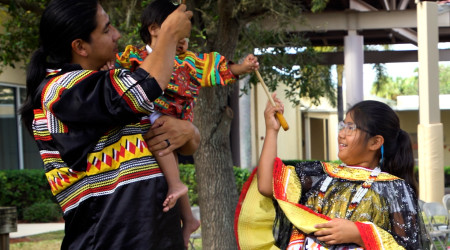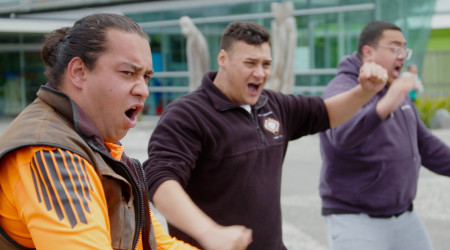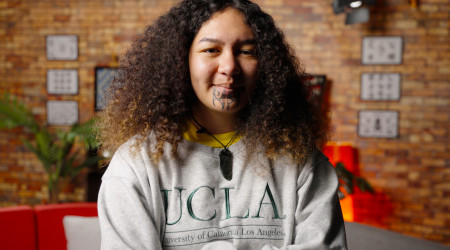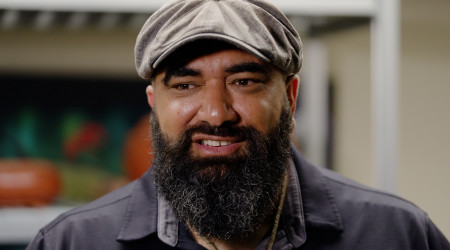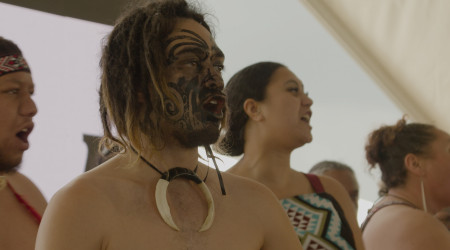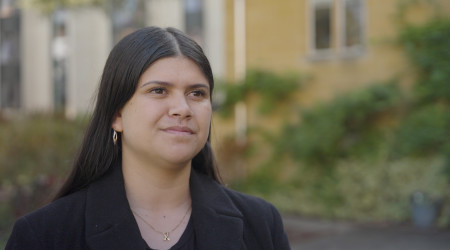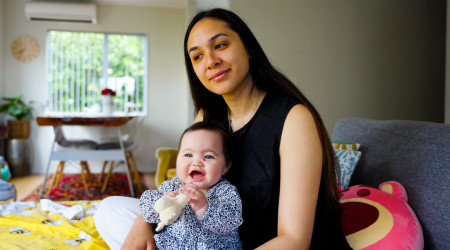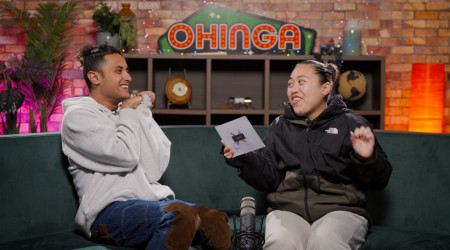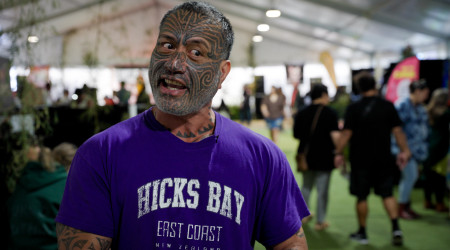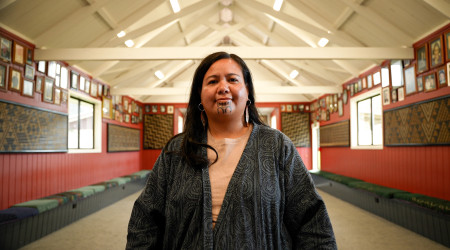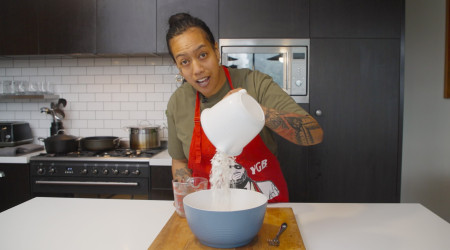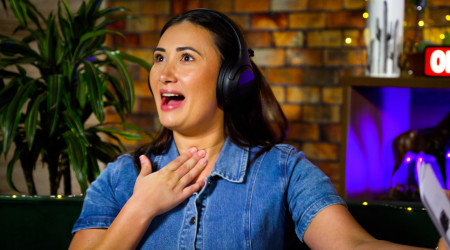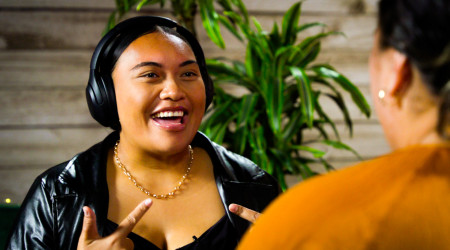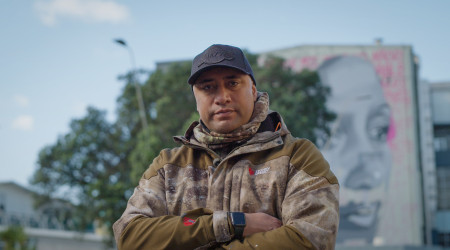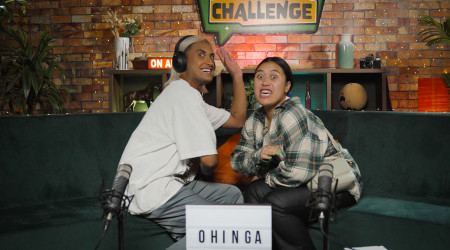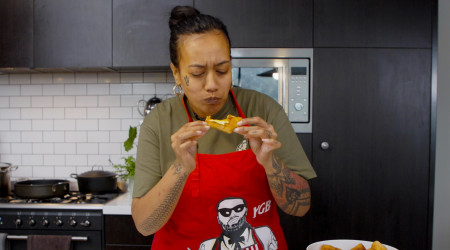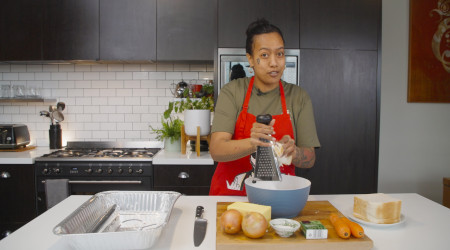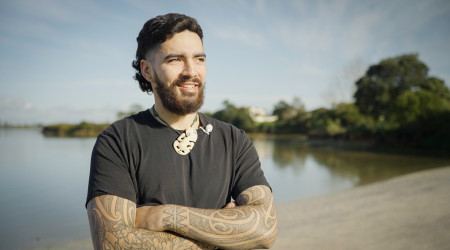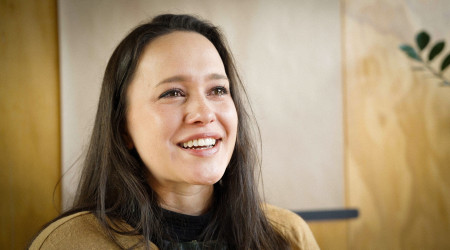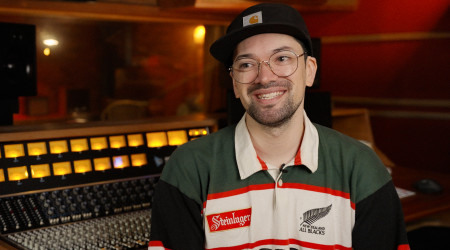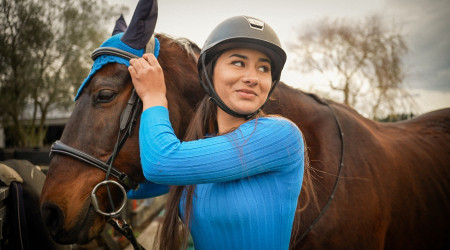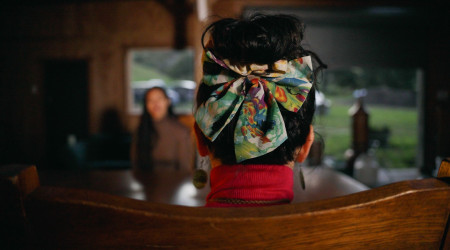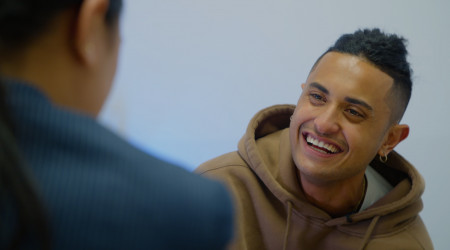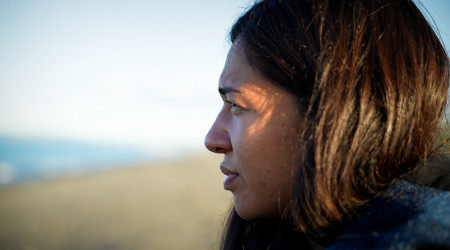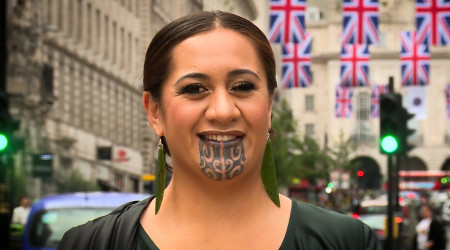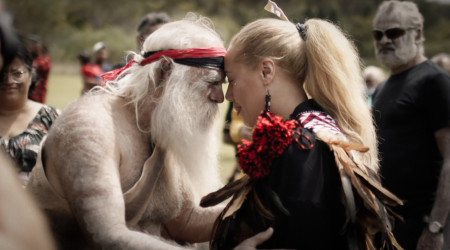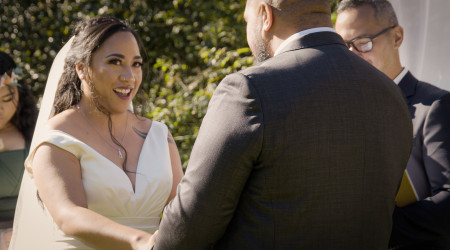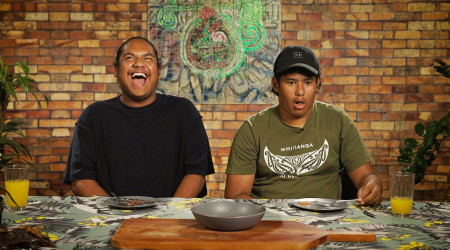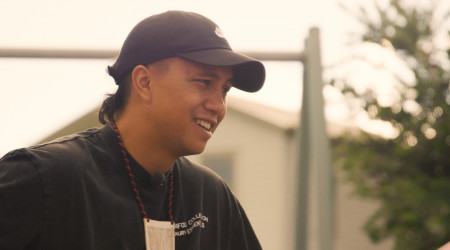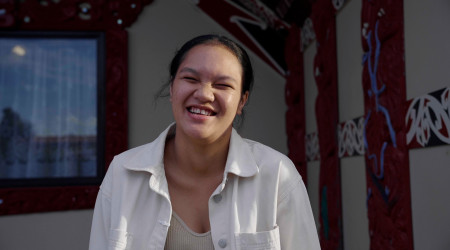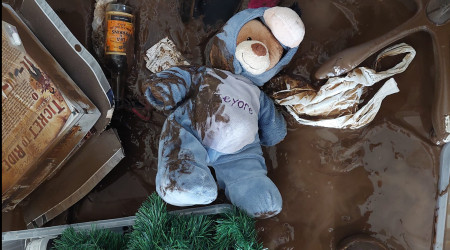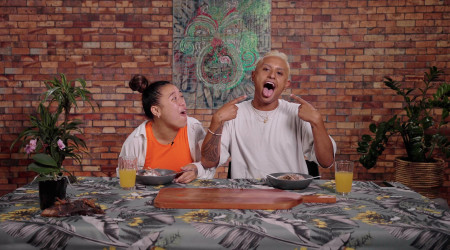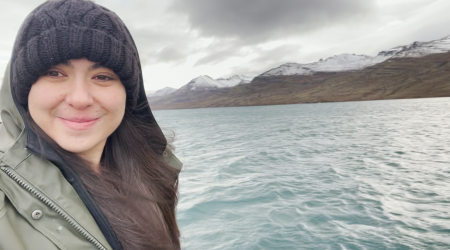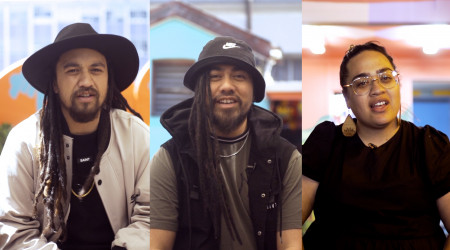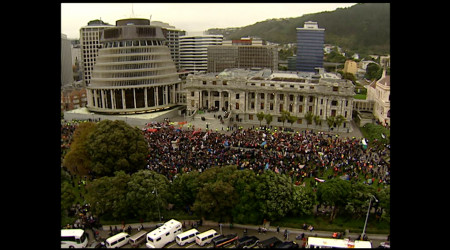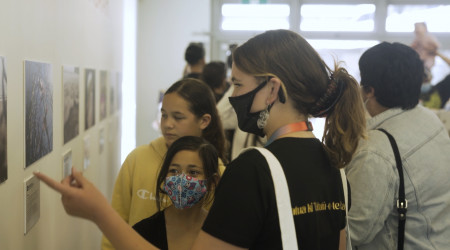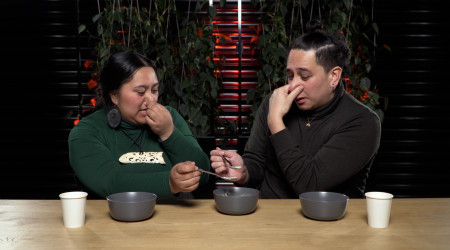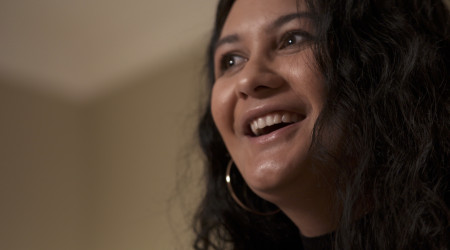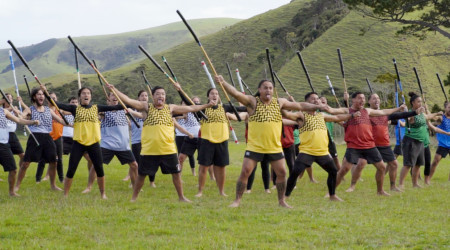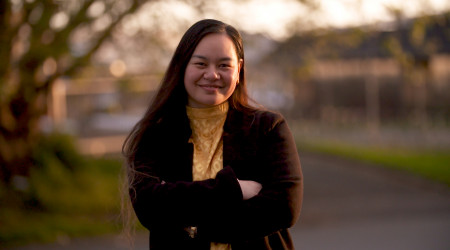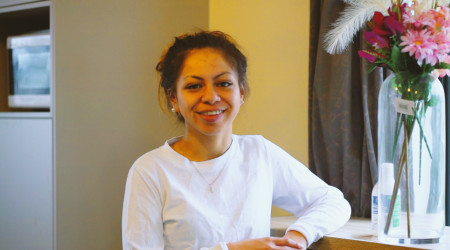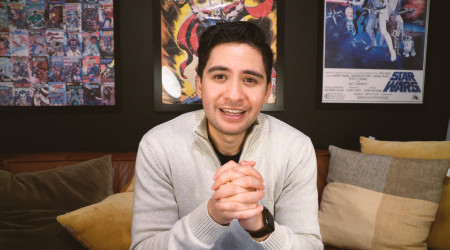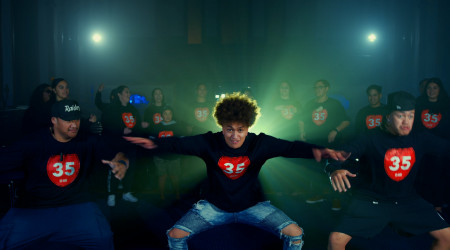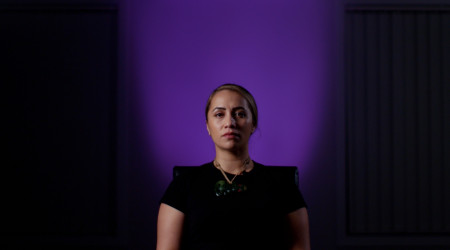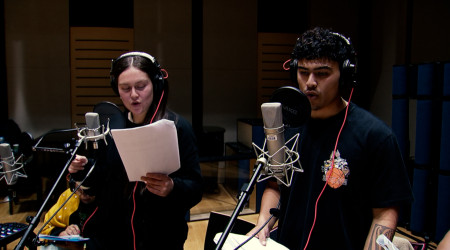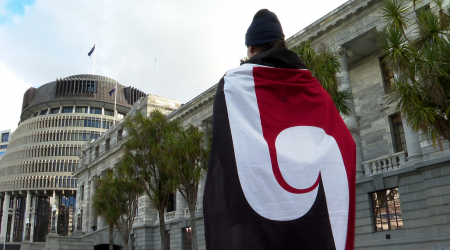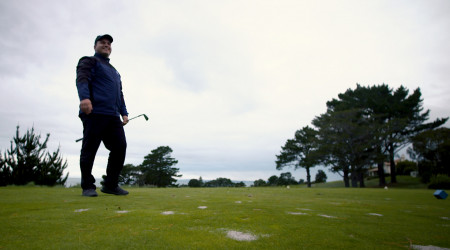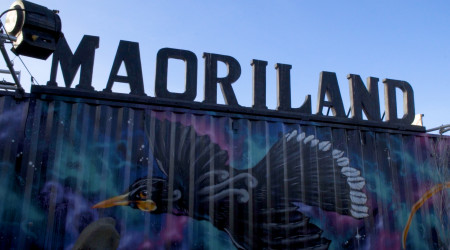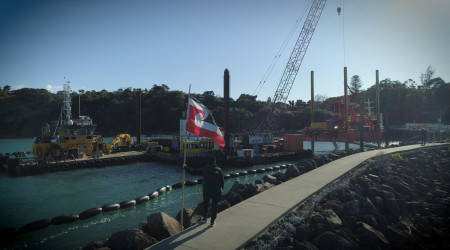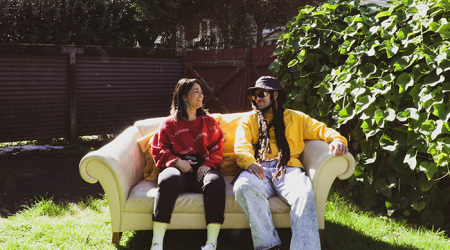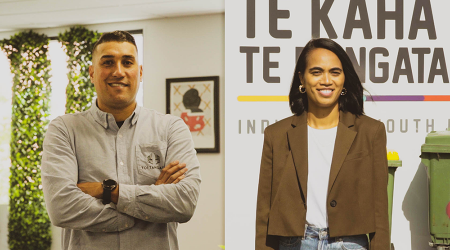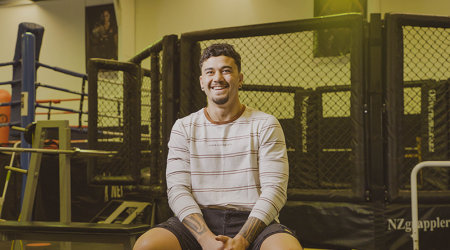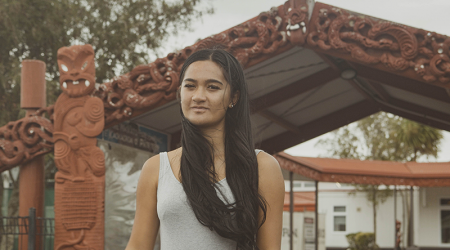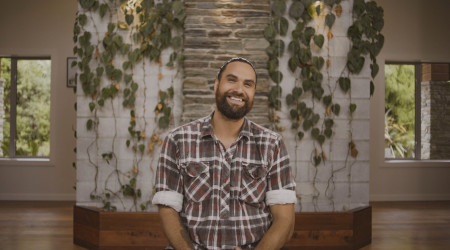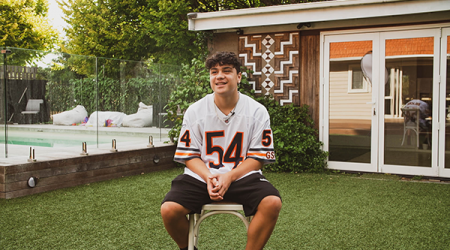How this trainee navigator uses a star compass to sail waka
The Matariki public holiday has brought renewed interest in the night sky but for traditional waka navigators, analysing the stars is a way of life.
Te Pō Mārie Hawaikirangi (Ngāti Kahungunu, Ngāi Tahu) is undertaking training to become a navigator - learning to sail vast distances using the stars is no small feat.
As part of the 27-year-old’s training she visits Ātea a Rangi Star Compass in the Hawke’s Bay. The large compass is made of 32 pou or carvings. Each represents where certain stars are located and help navigators memorise the night sky - knowledge they use when out sailing to determine what direction to travel.
“From the first time I saw the waka … I fell in love with it; with the world of waka, the treasures our ancestors left,” she says.
Te Pō took Re:’s reo Māori series Ohinga onboard her group’s waka Te Matau ā Māui in Ahuriri (Napier).
“This is a treasure of ours and an extension of the work done at the star compass,” she says.
“It is desired that the navigator sits on their designated seat for the whole time. Their main role is to find the route. They watch out for all the signs. The stars, the sun, the moon, the clouds, the waves of Tangaroa and the winds of Tāwhirimātea are all big signs.”
Te Pō has sailed to Rēkohu (the Chatham Islands) onboard the waka - a journey that took four days.
She is one of just a handful of wāhine Māori training to be a navigator. Te Pō is encouraging others to get involved in waka navigation.
“Don’t be scared to come aboard the waka to learn about these things,” she says.
“Especially our young Māori women. It’s not only men who hold the positions of captain and navigator - our women do too.”
“It’s not as though this knowledge is new - it’s an intrinsic part of who we are.”
She says waka navigation is important because it carries ancestral knowledge that has been passed down through generations. “It’s our duty to ensure the knowledge continues to be passed on.”
This is part of our reo Māori series, Ohinga, created by Mahi Tahi Media, with funding from Te Māngai Pāho and the NZ on Air Public Interest Journalism Fund.
Stay tuned for a new episode every week.
More stories:
Celebrating Matariki as non-Māori
"You’re going to be playing some beats while I am planting the trees.”
‘A time of whakatau’: Pounamu Wharekawa on their Matariki illustrations
Re: talks to the Kirikiriroa-based artist about rest, whānau, what this time of year means to them.
Letting more students into med school would help with NZ doctor shortage
“Anything we can do to increase supply should be looked at.”


